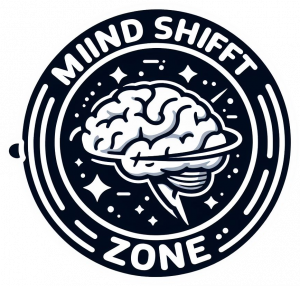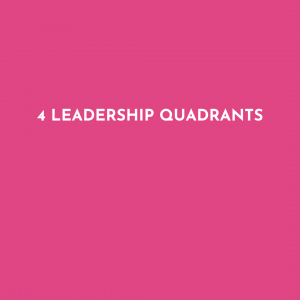Making the wrong hiring decision can be costly for your business. You lose out on training, onboarding and re-hiring costs. The official estimates on the cost of a bad hire vary wildly – from thousands to hundreds of thousands of dollars. It can be difficult to hire the right talent for your business and the true costs of mistakes depend on your company size and the impact of the role you hired.
In addition to training and re-hiring costs, there are other disadvantages of a bad hire:
- Decreased productivity;
- Severances and HR costs; and,
- Lower team morale.
To make a long story short, you want to avoid making bad hiring decisions. How can you do that?
It starts with rethinking your hiring strategy to focus on hiring for culture and diversity. In this post we’ll look at traditional hiring methods that can be revamped with culture-driven strategies and we’ll talk about why having diverse personalities on your teams is important.
At the end you’ll realise that your teams need both coffee lovers and tea drinkers. Sounds weird enough, but trust us, there’s a point to be made. Let’s take a closer look.
Hire the right talent for the role
No matter what innovative HR strategy you read into, you know that one of the most important aspects of hiring is to fill roles in your organisation. You need staff with varying levels of authority. You also need staff with varying skill sets: technical, IT, marketing, analysis – the list goes on.
The decisions you make to fill those roles will come from a comparison between the job description and the interviews with the candidates. It’s a traditional method of looking at your hiring needs, and that’s okay.
There’s an easy way to go a step further to make sure you really get the best personnel for your company. It’s about assessing more than just skillsets.
Next time you need to make a hiring decision, don’t restrict yourself to thinking that the most qualified person for the role is the one with the most expertise or technical education.
If you’re hiring an IT manager, do you need someone with six years of education or will someone with less expertise but a more fitting personality for your company work just as well? If you want your new IT manager to build relationships across your company and with new clients, then an outgoing personality might be a good requirement for your assessment.
Hiring for the role means more than just assessing skills and expertise. To hire the right talent is also about finding a good fit, which is much vaguer and much harder to do. Fortunately, it’s something that you can design to suit your business needs.
Hire for culture
Culture in an organisation is about the attitudes of employees. Culture thrives when colleagues and partners share core values with each other and the company at large.
A team culture is important for the success of your organisation because it means people will work better together. How can you screen for culture?
Ask questions about the candidate as a person, not necessarily about their technical expertise. You may have heard about some interviews that ask candidates wacky questions like “when you wake up in the morning do you seek out coffee or tea?”
Why would anyone ask a question like this?
In reality there is no wrong answer. Some will say coffee, others will say herbal tea. Others yet will say they don’t drink either. Whatever the answer, the point of the question is not to quiz the candidate. It’s about gauging their reaction to an abnormal question.
For a digital marketing firm, if the person has a positive reaction and offers a creative answer, then they may be the right fight.
Or, for an accounting firm, the hiring manager may value a response that’s calculated. If the candidate offers a thorough analysis of the nutrition and caffeine content of each beverage, then maybe that candidate is a good fit for the firm.
When culture wins, your teams work better together, they share resources and make better decisions. It’s kind of like the glue that holds different types of employees together. Or, culture is like the milk or cream that’s used in morning beverages. It’s shared by both coffee and tea drinkers and provides commonality and cohesion for your work units.
Diversity is key
Organizational culture, while a great way to screen candidates, is often debated in the human resources world. Devoting too much attention to culture also has its risks. Relying too much on finding a certain personality can restrict your talent pool and mean you hire the same types of people more often than you should.
It’s been said that it’s common for managers to hire employees that remind them of themselves. While that can be the fastest way to get on the same page and achieve results it’s also dangerous if used as a sole hiring strategy.
Having a full team of manager-minions isn’t particularly helpful because there won’t be much creative or diverse energy in the room. Employees won’t challenge each other or the manager because their values and attitudes are too aligned with one another.
That’s where diversity comes in. Diversity can be about finding a workforce balance for age, cultural background or gender. More than that, when we say diversity it can actually mean the entire spectrum of skills, perspectives and abilities.
Diversity helps ensure you have a thriving culture and that you embrace your differences. In other words, you need tea drinkers and coffee lovers on your teams to challenge each other and reach your full potential.
What a business coach can do?
There’s no question about it – to hire the right talent is a challenging part of your business. It’s a delicate process and a wrong decision can be costly.
If you’re interested in guidance for your hiring strategy, you should strongly consider a business coach. A good business coach can be both a helpful cheerleader for your business and can also offer you expert wisdom and advice to help inform your decisions.
The best coaches have worked with dozens or even hundreds of clients, so they have a wealth of experience to draw from in addition to the perspectives from their own careers, often in leading industries from around the world.
A coach can help you understand your hiring needs. You’ll look at gaps in your business and set up hiring scenarios to help you fill them. Together you’ll discuss how to design incentives and advertisements to help attract the best talent. You’ll also focus on finding a good balance of culture and diversity. Your business coach will know how to pair up coffee and tea drinkers to help your business reach new heights.
If you want to find out more about business coaching, or how to find a business coach for your business, check out our coaches. They’ll help you understand the coaching world and get you set up with a virtual coach that’s a good fit for your business.











